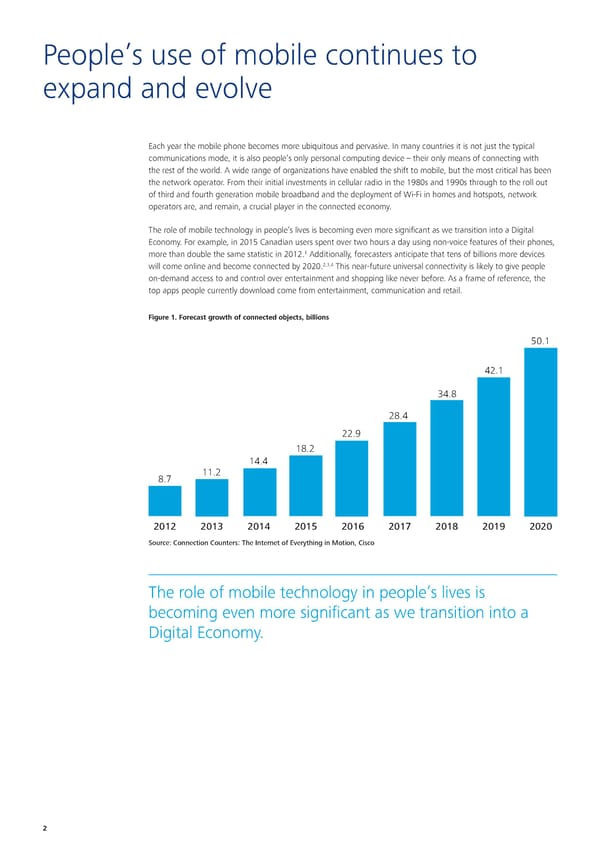People’s use of mobile continues to expand and evolve Each year the mobile phone becomes more ubiquitous and pervasive. In many countries it is not just the typical communications mode, it is also people’s only personal computing device – their only means of connecting with the rest of the world. A wide range of organizations have enabled the shift to mobile, but the most critical has been the network operator. From their initial investments in cellular radio in the 1980s and 1990s through to the roll out of third and fourth generation mobile broadband and the deployment of Wi-Fi in homes and hotspots, network operators are, and remain, a crucial player in the connected economy. The role of mobile technology in people’s lives is becoming even more significant as we transition into a Digital Economy. For example, in 2015 Canadian users spent over two hours a day using non-voice features of their phones, 1 more than double the same statistic in 2012. Additionally, forecasters anticipate that tens of billions more devices 2,3,4 will come online and become connected by 2020. This near-future universal connectivity is likely to give people on-demand access to and control over entertainment and shopping like never before. As a frame of reference, the top apps people currently download come from entertainment, communication and retail. Figure 1. Forecast growth of connected objects, billions 50.1 42.1 34.8 28.4 22.9 18.2 14.4 8.7 11.2 2012 2013 2014 2015 2016 2017 2018 2019 2020 Source: Connection Counters: The Internet of Everything in Motion, Cisco The role of mobile technology in people’s lives is becoming even more significant as we transition into a Digital Economy. 2
 Digital transformation for telecom operators Page 3 Page 5
Digital transformation for telecom operators Page 3 Page 5